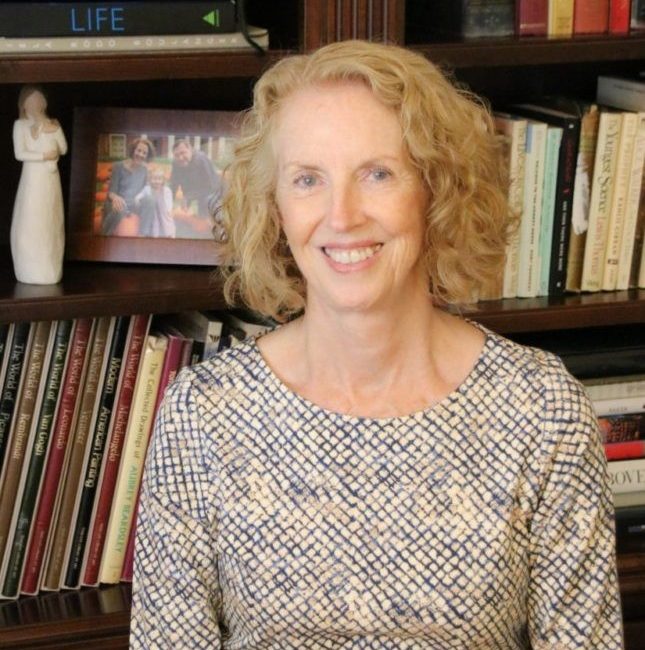
‘So Many Babies’ by Dr. Susan Landers recently roared on to the bestseller list, no doubt due to the powerful nature of her work, and her story. In this must read book Landers takes readers into her world, one that had her weaving together medicine and raising three children.
While practicing medicine in the NICU full time for over thirty years, Susan Landers, MD met and managed many trials raising her three children, trials typical for many working mothers, such as breastfeeding, sibling rivalry, bedwetting, dyslexia, a gifted child, ADHD, a dog bite, and an adolescent eating disorder. The challenges of a full time practice and many twenty-four-hour shifts in the high-stress NICU always complicated issues with Susan’s children, but also provided her the privilege of caring for thousands of critically ill newborn infants.
Susan always felt that her career and accomplishments in medicine were equally as rewarding as raising three children. It was the constant attempt to balance these two worlds – physician and mother – that was so daunting a task. Susan believes that most, if not all, working mothers are similarly challenged as they attempt to manage their work and being a good mother. ‘So Many Babies’ describes Susan’s experiences of finding resilience and endurance throughout her career as a physician and mother. It is an entertaining and reassuring story for working mothers.
‘So Many Babies’ by Dr. Susan Landers is one of those books that grabs you from the beginning, and keeps you enthralled to the very end, making it a must read of this season and next. Recently Landers and I chatted about her book, her work, and more.
Q & A
‘So Many Babies: My Life Balancing a Busy Medical Career & Motherhood’ is an epic read. What was your inspiration for writing this groundbreaking book?
I wanted the public to know and appreciate the work that is done in the neonatal intensive care unit (NICU). Only ten percent of newborn infants will require NICU care, but for those who do, it is a challenging time for each baby admitted and for their parents. I wanted to recount inspiring stories of parents whose children stayed in the hospital for four to six months, or longer. Describing how parents cope with having a child hospitalized long term, how they often must witness their baby progressing from the brink of death to recovery, helping them make sense of medical diagnoses, and shepherding them through the emotional roller coaster that is life in the NICU are trials worthy of notice by those who give birth to normal newborns.
After reading ‘So Many Babies” what do you hope readers take away with them?
Not only did I want my readers to get an accurate picture of life in the NICU, but also, I wanted them to get a sense of what my life as a physician-mom was like. I raised three children, all to young adulthood while working full-time in the NICU. This was no easy feat, and I needed help from my husband and many nannies along the way. Like many hard-working mothers today, I felt guilty at times when I was away from my children. I missed some important milestones in their lives. But I loved practicing medicine and felt fulfilled as a neonatologist. I wanted my story to be exemplary of the paradox that working mothers face today.
What’s the most interesting feedback you received from a reader?
Younger working mothers have commented that my book shows how we all share a desire to be a supermom – love our work, do a good job, and be the best mother we can be always – and how we all struggle to make this impossible endeavor workable. One precious reader commented, “All working mothers start from ground zero” as we return to work after maternity leave and must learn to trust someone else to care for our baby. We all experience working mother’s guilt. I have been delighted that so many younger mothers can identify with my stories and see themselves struggling with (and conquering) the same challenges I did as a working mother.
While writing this rather amazing book did you learn anything new about yourself?
It took me over eighteen months to write this book, and another six months to perfect it by working with my editor. That provided me with time to reexamine my life and my accomplishments as a mother and as a physician. I discovered once and for all, that I was, in fact, a good enough mother to my children. I also reaffirmed that my medical career had been successful, that I had cared for thousands of babies, and held the hands of many terrified parents along the way.
During your 30 years practicing medicine in the NICU full time, you also raised a family, which is clearly very challenging. What was one of your keys to successfully navigating these challenges during that time?
My greatest helper was my husband; however, it took me quite some time to learn how to ask him for help in ways that worked. Functioning as a team, we learned that clear communication was crucial. So many working mothers try to do more than their share, and simply do not ask their husband or partner for the assistance they need. I also learned to trust my nannies, my children’s teachers, and their coaches for help and guidance. Most working mothers do not survive without an adequate support system, which includes not only teachers and coaches, but also other working mothers.
Is there another book or project you have in the works you can tell us about?
I am active on Instagram as a supporter of working mothers, and I have several webinars for working mothers planned for the spring. I am also speaking professionally to other doctors about physician burnout. Because I suffered through burnout at the end of my career and slowly healed from that, I want to help other physicians avoid falling into the same dark abyss. Medicine is a wonderful, rewarding profession, but the chronic stress from working in the hospital or in a busy clinic can wear you down into someone who is no longer resilient. Recovering from burnout takes great effort; preventing burnout in the first place can be taught.












